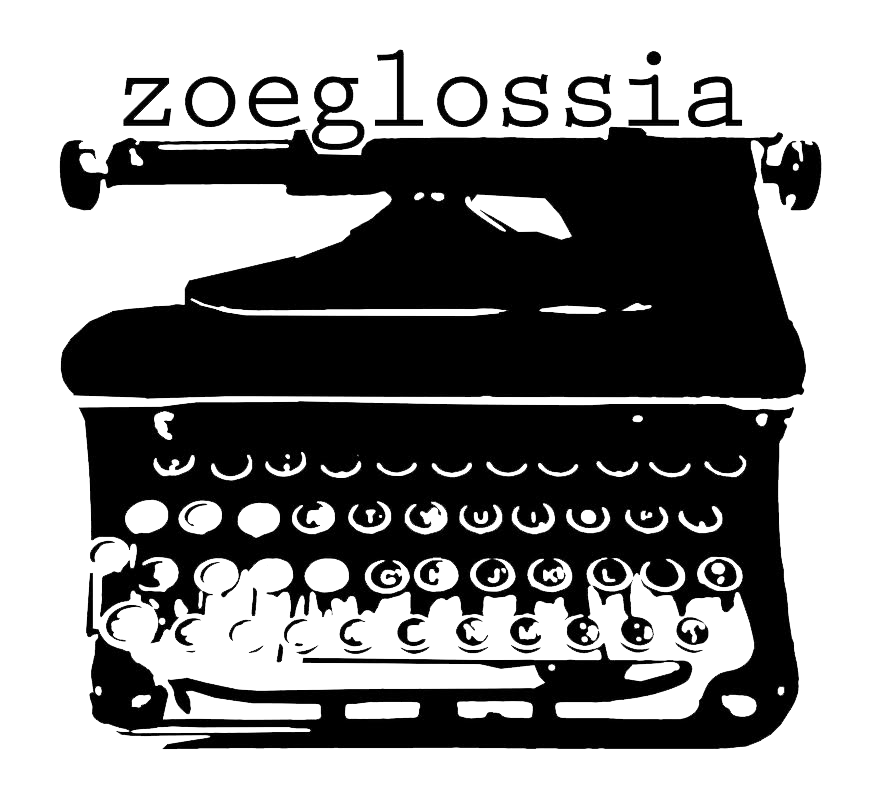September 2022
Zoeglossia Poem of the Week Series: F.I.R.E (four 🔥 iridescent 🔥 revolving 🔥 ellipses)
Curated by Saleem Hue Penny
The four poets in our September 2022 collection are Kimberly Jae (Sept.5), Pinka PopsicKle (Sept. 12), Leslie McIntosh (Sept. 19), and Walela Nehanda (Sept. 26). Together, the poets and their selected works can be described by the acronym F.I.R.E: Four, Iridescent, Revolving, Ellipses.
I was honored to experience these poets’ dynamism and passion during the 2022 [margins.] conference. After blessing us with insightful, vulnerable, melancholic pieces, we held a panel discussion about how disabled poets and creatives approach digital/social content creation in an ableist/capitalist landscape determined to commodify our disabled identities.
The conversation “Crip Cash: Resisting the Commodification of Disabled Identities” [click for session slides] touched on a range of topics from the hidden emotional costs of Patreon and other membership-supported platforms, to the importance of maintaining an integrated disability identity, to analyzing how government social safety net programs, foundation grants, and the nonprofit industrial complex can trap disabled poets and creatives in cycles of economic poverty.
In the spirit of the Crip Cash conversation, the poems featured this month embody several definitions of fire:
(n) fervent or passionate emotion or enthusiasm.
(v) direct questions or statements toward someone in rapid succession.
(n) luminosity; glow.
(v) discharge projectiles from a gun or other weapons
(n) a burning sensation in the body.
(v) stimulate or excite (the imagination or an emotion)
Kimberly Jae (she/her) comes blasting out of the chamber with “Simulation or that time I saw Quason Turner in my son’s eyes”. The speaker circles the many layers of grief and mourning Black lives, an experience too often reduced to algorithmic, corporate media, clickbait. Indeed, in this season of multiple pandemics, where less than half of Democrats can agree that Black Lives Matter, eight-in-ten 10 Hispanic adults know someone personally who has been hospitalized or died from coronavirus, and nine-in-ten Republicans view the economy as the top issue (20 percentage points higher than any other issue) in the upcoming elections, the safety, and care of children and youth is easily disregarded. Her speaker will not allow the lives of her son and other Black and Brown boys to be forgotten: “Sons are supposed to shine light, but I am enveloped in darkness.”
Indeed Pinka PopsicKle’s (she/her) poem, “After after” asserts that a society’s future lies in its ability to develop a sensory memory, “because to name is to remember and to write is to record”. The poem deftly transitions between English, Hindi, Urdu, and Gujarati, connecting the reader to larger global struggles, and reiterating the universality of birdsong and longing, but also politics and corruption. Yet, the speaker is determined to maintain a vision for tomorrow, “after our fiery spirits kept us alive through the winter… after it all turns to shit or ashes–whichever comes first.” Even as sweeping gestures of love and labor, the personal and political abound, this poem refuses to provide the reader a recipe, map, or manual. Perhaps after we recommit with each sunrise (& son rise) to smell, taste, listen, and remain in remembrance of our many yesterdays, our collective afters, we will arrive in a new place. Perhaps after “we have exhausted exhaustion” we will find ourselves under the shade of a Banyan tree, together.
Yes, together. Leslie McIntosh (he/him) gently but emphatically weaves this affirmation over, under, around, and through “imagine distinct from anticipate”. These 12 gently crisp lines possess a labyrinthian Black interiority, rich with the whispers of bodies anticipating an unrequited dance. The speaker is not beholden to the object of their affection–be it lover, partner, fling, flame, or soulmate. Rather the speaker understands the precariousness of loyalty, and how easily we underestimate the toil required to remain, (yes), together. “Keep hanging until a flaming rope of bedsheets drifts toward you. The audio recording of this poem is elementally steam. It is cool rain spilling from unapologetically Black clouds, sizzling on sun-baked terracotta roof tiles. The line between imagination and anticipation is evasive. How many times have teardrops nearly doused your beating heart?
Early in Walela Nehanda’s (they/them) poem, the speaker wryly observes, “Funny this thing they do/ Set a fire then say they almost burned alive.” This sentiment is immediately recognizable to any disabled, Black, Brown, Indigenous, Asian, LGBTQIAA+ person, who has been gaslit by the modern-day “torches” of able, “White-body supremacy”. Despite–and because of–racial disparities in MFA program acceptances, editor biases around the marketability of Black literary art, and inequitable publishing contracts, it is crucial that Black poets and creatives build solidarity cultures, sharing wisdom and warnings across career stages. Within this context, “I wanna talk about the white women now” does the brave work of naming the offense, then across half-a-dozen stanzas documenting the re/offenders again and again and again and again (and again). Unfortunately, this persistence is a prerequisite for the speaker because “That's the thing/ truth will make a mirror outta these women and they wanna destroy it/ Which means they want to destroy me too”. Wisdom and warnings.
Four 🔥 Iridescent 🔥 Revolving 🔥 Ellipses.
Four (n) as in: colleagues, a crew, co-conspirators, two pairs, four of a kind,
in the club swift spades open hearts drip-drip-diamond
sweat/
Iridescent (adj) as in shining: from every angle radiating anew/
Revolving (v) as in turning: east to wake, west to sleep, south to settle,
north to dream/
Ellipses (n) as in: what might come, to be… the past done passed, but
returned and brought a present back//
Dear Zoeglossia readers, we hope these poems are demanding.
The challenges facing Disabled, Black, and Indigenous, Bodies of Culture certainly are relentless.
At the close of “After, after”, the speaker (in a soft voice and/or a scream) asserts
“Friend, meet me at the intersection— we will rest in the debris and marvel at the glorious blaze we be.”
Yes, dear readers,
In solidarity, we be, we.
